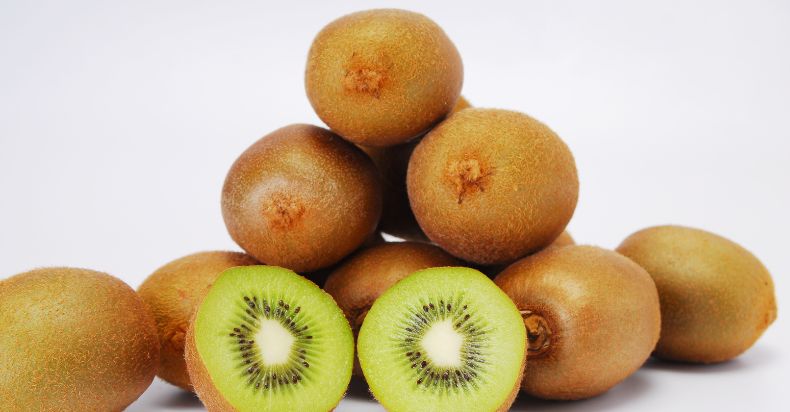Oxalates are naturally occurring compounds found in a variety of foods, including fruits, vegetables, nuts, and seeds.
While they are generally harmless for most people, excessive oxalate consumption can lead to the formation of kidney stones in susceptible individuals.
This article will explore the oxalate content in kiwifruit and provide recommendations for including them in an oxalate diet.
Is Kiwifruit High in Oxalates?
Kiwifruit has a moderate oxalate content, with a 100-gram serving containing approximately 15-25 milligrams of oxalates. Therefore, it is advisable for individuals following an oxalate diet to consume kiwifruit in moderation and be mindful of their overall oxalate intake.
Understanding Oxalates
Oxalates, or oxalic acid, are organic compounds that can bind to minerals in the body, such as calcium, forming crystals that may accumulate in the kidneys and lead to kidney stones.
For individuals who are prone to kidney stones or have been advised to follow a low-oxalate diet, it is important to be aware of the oxalate content in the foods they consume.
The Oxalate Diet
An oxalate diet involves limiting the intake of foods high in oxalates while increasing the consumption of low-oxalate foods.
This diet is often recommended for individuals with a history of kidney stones or other oxalate-related health issues.
The key principles of an oxalate diet include being aware of the oxalate content in foods, consuming calcium-rich foods to reduce oxalate absorption, and drinking plenty of water to help flush oxalates from the body.
Nutritional Benefits of Kiwifruit

Kiwifruit is a nutrient-dense fruit that is rich in vitamins and minerals, including vitamin C, vitamin K, and potassium.
It is also a good source of antioxidants, which can help combat oxidative stress and inflammation.
Including kiwifruit in your diet can provide numerous health benefits, such as supporting immune function, promoting digestive health, and reducing the risk of chronic diseases.
Oxalate Content in Kiwifruit
Kiwifruit has a moderate oxalate content. A 100-gram serving of kiwifruit contains approximately 15-25 milligrams of oxalates.
This is higher than the oxalate content in some other fruits, such as grapes and apples, but lower than fruits like blackberries and spinach.
Therefore, if you are following an oxalate diet, it is advisable to consume kiwifruit in moderation and be mindful of your overall oxalate intake.
Managing oxalate intake is essential for individuals following an oxalate diet.
Here are some tips for reducing oxalate consumption:
- Be aware of the oxalate content in the foods you consume.
- Cook high-oxalate foods to reduce their oxalate content.
- Consume calcium-rich foods along with high-oxalate foods to reduce oxalate absorption.
- Drink plenty of water throughout the day to help flush out oxalates from the body.
Conclusion
Kiwifruit has a moderate oxalate content and can be included in an oxalate diet when consumed in moderation.
It is important to be mindful of your overall oxalate intake and follow a balanced diet that includes a variety of low-oxalate foods.
By being aware of the oxalate content in foods and managing your oxalate intake, you can enjoy the nutritional benefits of kiwifruit while minimizing the risk of kidney stones and other oxalate-related health issues.
